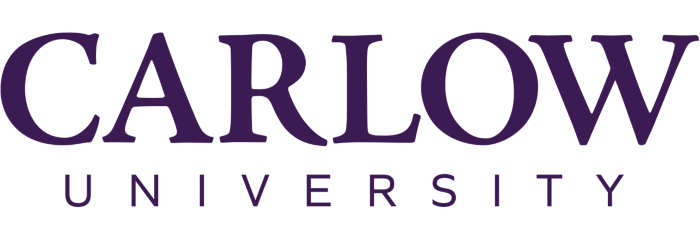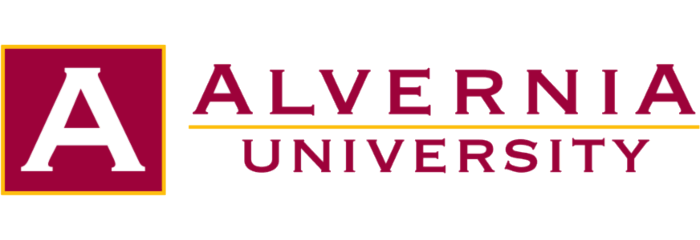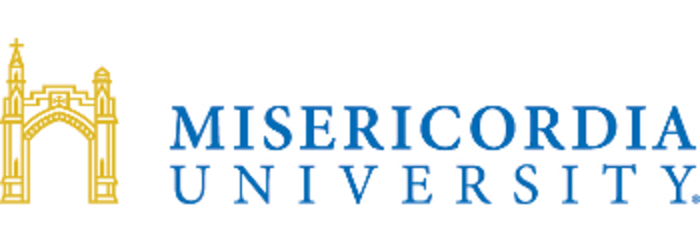2025 Best Online Substance Abuse Counseling Degrees in Pennsylvania
There are a few options for online substance abuse counseling degrees in Pennsylvania across different levels. These programs range from the certificate to the graduate level. They are designed to accommodate your schedule while providing comprehensive education in behavioral health, addiction treatment, and counseling techniques.
Key Takeaways:
- Drexel University supports thousands of online students and offers a Master of Science in Addictions Counseling online.
- Carlow University is endorsed by a 100% recommendation rate, highlighting perfect student satisfaction.
Our ranking methodology for identifying the best online degrees by state involves evaluating programs based on several criteria, including the school's primary campus location and the availability of fully online degrees. We incorporate data from the Integrated Postsecondary Education Data System (IPEDS).
List Of Accredited Online Substance Abuse Counseling Schools
| School | Online Enrollment | Annual Tuition |
|---|---|---|
| Drexel University | $37,074 | |
| Carlow University | 729 | $22,110 |
| Alvernia University | 286 | $16,686 |
| Misericordia University | 268 | $38,620 |
2025 Best Online Substance Abuse Counseling Degrees in Pennsylvania
- Online Enrollment: 4,477 enrolled
- Annual Tuition: $37,074
- Location: Philadelphia
Online degree:
Why we like them: DU is at the top of our list due to its popularity among online students, which places it in the top 16% compared to other institutions nationally. DU's online MS in Addictions Counseling is oriented toward providing a thorough understanding and application of evidence-based practices. The program also prepares students for state-level certification requirements in addiction counseling. The curriculum includes 73.5 total credits, delivered through four 10-week quarters per year. And based on 147 reviews we've collected from students, DU boasts a high 87% recommendation rate.
- Online Enrollment: 729 enrolled
- Annual Tuition: $22,110
- Locations: Pittsburgh (and 2 others)
Online degree:
Why we like them: Carlow is next and has been ranked second for its popularity, with hundreds of fully online students. Carlow offers a fulfilling Post-Master's Certificate in Alcohol and Drug Counseling, tailored for both new and experienced practitioners. It includes courses like Introduction to Substance Abuse Counseling and Counseling Clients with Co-occurring Disorders. Through 180 hours of addiction-specific coursework, students gain expertise in multicultural and social justice issues within the field. The program allows participants to deepen their competencies for advanced counseling roles without the need for in-person attendance.
- Online Enrollment: 286 enrolled
- Annual Tuition: $16,686
- Location: Reading
Online degree:
Why we like them: AU ranks third for us due to its online offerings, which positions the university as an emergent player in the online education sphere. AU's BA in Addictions and Mental Health Treatment is a deeply established program, designed to equip you comprehensively for a career in various mental health fields. Completing this degree involves 123 credits over 2-4 years, with course lengths of seven weeks, allowing for a tailored pace. The curriculum includes a balance of core subjects like Foundations of Addictions and Crisis Intervention.
- Online Enrollment: 268 enrolled
- Annual Tuition: $38,620
- Location: Dallas
Online degree:
Why we like them: MU demonstrates a strong capacity to engage online students effectively. Through its Certificate in Addictions Counseling, MU excels in accommodating adult learners, with an emphasis on credit transfer and credit for life experiences. It offers both hybrid and fully online courses, utilizing the Blackboard learning management system. Hybrid courses include some in-class meetings, allowing students to ease into online learning, while fully online courses offer seven-and-a-half to fifteen-week formats. The school's Certificate in Addictions Counseling is part of its exhaustive online catalog, along with undergraduate and graduate degree programs. MU has a high 90% recommendation rate as well based on reviews we've collected.
Substance Abuse Counseling Degrees in Pennsylvania
In Pennsylvania, county governments are tackling high drug overdose mortality rates by creating drug and alcohol agencies, establishing take-back programs, and expanding Naloxone distribution. These agencies offer vital services, including treatment referrals, counseling, and recovery support, to individuals battling substance use disorders.
This growing need underscores the demand for trained, licensed substance abuse counselors — an opportunity for those earning online substance abuse degrees in Pennsylvania.
To find the program that best fits your needs, explore our list of the most affordable online substance abuse counseling degrees.
FAQs About Substance Use Counseling Degrees in Pennsylvania
What Can You Do With a Substance Use Counselor Degree in Pennsylvania?
If you've earned a traditional or online substance abuse counseling degree, there are many ways to build a career around helping people in your community.
One of the most common ways is to serve as a substance abuse counselor. The type of degree you've earned will dictate which level of substance abuse counseling certification you can achieve. An associate degree qualifies you for the Certified Associate Addiction Counselor (CAAC) level, and a bachelor's degree equips you for the Certified Alcohol and Drug Counselor (CADC) level. You'll need a master's degree in substance abuse counseling or doctorate to reach the highest level, which is the Certified Advanced Alcohol and Drug Counselor (CAADC).
As an alternative to providing substance abuse counseling in Pennsylvania, you could go to work in a state or local government agency or nonprofit organization. In this capacity, you will most likely spend your time coordinating prevention and treatment programs, developing public awareness campaigns, or perhaps raising funds for your organization.
How Do I Become a Substance Use Counselor in Pennsylvania?
Those who aspire to become a substance use counselor in this state can apply for one of three levels of substance abuse counseling certification, depending on your level of education. You'll submit your application to the , which is the government agency that manages licensing for professionals who provide substance use counseling in Pennsylvania.
The lowest level of certification is the Certified Associate Addiction Counselor (CAAC), and the mid-level certification is the Certified Alcohol and Drug Counselor (CADC). Both of these levels are limited to providing substance use disorder counseling, treatment planning, and recordkeeping under the supervision of higher-level counselors. Only those who hold the highest level of certification, which is the Certified Advanced Alcohol and Drug Counselor (CAADC), are allowed to practice independently.
Becoming a CAAC requires a high school diploma or associate degree. However, you must have 300 hours — or about 20 courses — of college education, of which 100 hours must be specific to addiction counseling. Additionally, you'll need 6,000 hours of part-time work experience as a drug and alcohol counselor, 300 hours of supervised work experience, and a passing score on the ADC Exam, which is administered by the International Certification and Reciprocity Consortium ().
To become a CADC, you'll need a bachelor's degree in addiction counseling or a similar clinical field. You are also required to have accumulated 4,000 hours of part-time work experience, 200 hours of supervised clinical work experience, and a passing score on the IC&RC ADC Exam.
If you plan to qualify as a CAADC, you'll need a master's degree or doctorate in addiction counseling or a similar clinical field, and your program must have included at least 12 courses in substance abuse counseling. You are also required to have accumulated 2,000 hours of part-time work experience, 100 hours of supervised clinical work experience, and a passing score on the IC&RC AADC Exam.
All three types of licenses must be renewed every two years. To qualify for renewal, you'll need documentation showing that you've completed 40 hours of counseling-related continuing education.
Does Pennsylvania Have Reciprocity for Substance Use Counselors?
Yes, if you are an IC&RC-certified substance use counselor from another state, you may be able to transfer your credential to the comparable level of certification in Pennsylvania. If you would like to begin offering in-person or online substance abuse counseling in Pennsylvania, contact IC&RC to initiate the reciprocity process.
How Much Does An Addiction Counselor Make in Pennsylvania?
According to the Bureau of Labor Statistics (), addiction counselors are grouped together with all substance abuse, behavioral disorder, and mental health counselors. There are approximately 24,040 such counselors in the state, and they earn a mean annual salary of $56,090.




